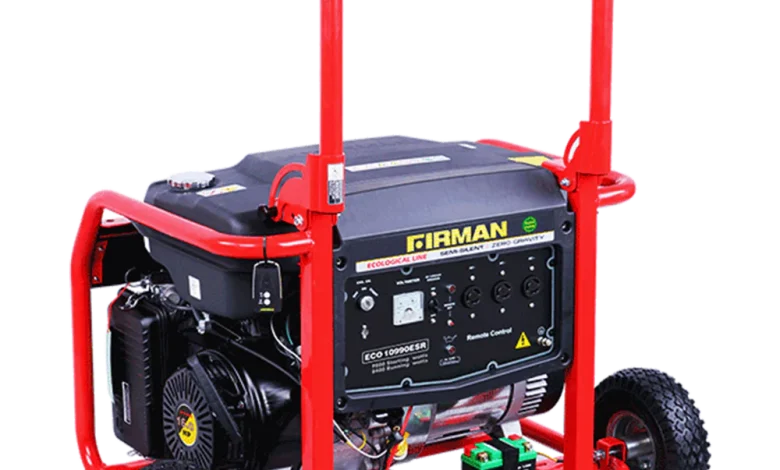
In the bustling outskirts of Lagos and the heart of Nigeria’s capital, Abuja, where power outages are a daily hassle, self-servicing generators have been a practical solution for households, small businesses, and companies.
They have kept the lights on and businesses running when the power supply fails which is more often than imagined.
Recently, though, this solution is slipping out of reach. Walk into any generator shop, and you’ll see worried faces and fewer customers.
The reasons are clear: high inflation, rising business costs, and hefty import tariffs, all worsened by the devaluation of naira.
For business owners who depend on these generators to keep their doors open, the rising prices are a harsh reality.
Traveling across Quang Binh to stunning cinematic locations
News continues after this ad
An 11 kilovolts (kV) generator, once affordable, now costs between N700,000 and N750,000, a recent market survey by Nairametrics shows.
The familiar hum of generators is growing quieter as fewer people can afford them.
Reliable backup for power outages is becoming a luxury, leaving both sellers and buyers in a difficult situation, uncertain about the future.
Market trends from different places
“We don’t see customers the way we used to,” said M.D. Emeka, a generator seller around Maryland axis, Ikorodu Road. “You might think it’s due to an improvement in power supply, but that’s not the case”.
Pointing to an ELEPAQ generator with a tire wheel beneath it, he added, “This 11kV used to sell for around N450,000 six months ago. Now, it’s N700,000.” His words reflected the struggles many in the industry are facing.
When asked which generator would power a small business with two deep freezers and other appliances, Festus, another dealer in Kuba in Abuja, pointed to an 11kV model.
He suggested that an 8kV SUMEC generator, priced at N630,000, could also do the job. “This one will handle a deep freezer and a fridge. It can even run an AC, as long as there aren’t other heavy appliances,” Festus explained.
However, he noted that people are less interested in “big gens” now due to the high prices.
“Fuel is expensive, and a generator we used to sell for N300,000 is now N630,000,” he added, still pointing to the 8kV SUMEC generator.
Similar trends are observed by Nairametrics in other markets such as Alaba, Ladipo market, Satellite town in Festac as well as local communities like Ikorodu, Ipaja and Egbeda — all parts of Lagos.
On average, Nairametrics observed the following prices of each model:
11kV Generators: N700,00 to N750,000 (depending on location and models).
8kV Generators: N610,000 to N650,000 ((depending on location and models).
3.3kV Generators: N450,000 to N400,000 (depending on location and models).
2.8kV Generators: N350,000 to N390,000 (depending on location and models).
No alternative for small business owners
In Nigeria, where the national power supply is notoriously unreliable, small businesses rely heavily on generators like the 11kV and 8kV models to keep their operations running. Despite government efforts to boost power generation, the country still produces only 4,500MW for over 200 million people.
This limited supply means that businesses needing constant electricity must often find their own solutions.
Alice Okoye, a middle-aged woman in Abuja, runs a cyber-cafe that serves students, professionals, and anyone needing internet access.
However, she struggles with the erratic power supply. “We get less than 12 hours of electricity a day, mostly in the middle of the night,” she explained, frustration evident in her voice.
“They say we’re in Band B, but it feels like we’re forgotten. They bring the light at night, then take it away during the day, only to return it in the evening,” Alice lamented. “That means we don’t get to see light during business hours.”
Her cybercafe depends on ”two big gens,” both of which are nearly worn out due to overuse. With prices rising, Alice is saving to buy a new generator.
“How can I afford a generator costing over half a million when my business doesn’t earn that much even in six months?”
Alice’s experience is shared by many others. Barbers, welders, boutique owners, and small lounge operators across Nigeria face similar challenges.
Christopher Orsu, a barber in Surulere in Lagos, said he has become adept at maintaining his generator. “People don’t wait for you if you don’t provide electricity; they move on to the next shop,” he said.
Orsu said he prays every day his generator does not run out of steam, “It means I will have to pack up or borrow money to keep my shop open. Generators are gold now,” he told Nairametrics.
Solving Electricity Problems in Nigeria
Nigeria’s electricity sector continues to battle low power supply, leaving households and businesses to depend on alternative sources like generators and solar panels.
The Minister of Power announced plans to ramp up power generation on the grid to 6,000MW. However, this may not fully address the underlying issues.
Energy analyst Ayodele Oni remarked, “Nigeria will still have to depend on generators for a long time since 6,000MW is not sufficient to meet the demand, at least for another ten years.”
According to Oni, the planned increase in power generation will not be enough to address the nation’s chronic energy deficit. Many regions will continue to rely on generators as a primary power source, as the grid’s capacity remains far below the country’s needs.
Lagos-based energy consultant Moses Owolabi highlighted the situation, noting, “While generators contribute to significant carbon emissions, they remain a reliable alternative for consumers. In many cases, they are more dependable than solar energy, which can be inconsistent due to weather conditions.”
Owolabi explained that despite the environmental concerns, generators offer a more consistent and immediate solution for power supply compared to solar energy, which is often hindered by inadequate infrastructure and variable sunlight.
Given the high price of generators, many dealers may close their shops, leaving businesses in ruin and communities in blackout.



